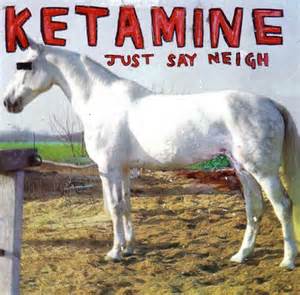MassGen
"Repeat intravenous treatment with low doses of the anesthetic drug ketamine quickly reduced suicidal thoughts in a small group of patients with treatment-resistant depression. In their report receiving Online First publication in the Journal of Clinical Psychiatry, a team of Massachusetts General Hospital (MGH) investigators report the results of their study in depressed outpatients who had been experiencing suicidal thought for three months or longer.
“Our finding that low doses of ketamine, when added on to current antidepressant medications, quickly decreased suicidal thinking in depressed patients is critically important because we don’t have many safe, effective, and easily available treatments for these patients,” says Dawn Ionescu, MD, of the Depression Clinical and Research Program in the MGH Department of Psychiatry, lead and corresponding author of the paper. “While several previous studies have shown that ketamine quickly decreases symptoms of depression in patients with treatment-resistant depression, many of them excluded patients with current suicidal thinking.”
It is well known that having suicidal thoughts increases the risk that patients will attempt suicide, and the risk for suicide attempts is 20 times higher in patients with depression than the general population. The medications currently used to treat patients with suicidal thinking – including lithium and clozapine – can have serious side effects, requiring careful monitoring of blood levels; and while electroconvulsive therapy also can reduce suicidal thinking, its availability is limited and it can have significant side effects, including memory loss.
Primarily used as a general anesthetic, ketamine has been shown in several studies to provide rapid relief of symptoms of depression. In addition to excluding patients who reported current suicidal thinking, many of those studies involved only a single ketamine dose. The current study was designed not only to examine the antidepressant and antisuicidal effects of repeat, low-dose ketamine infusions in depressed outpatients with suicidal thinking that persisted in spite of antidepressant treatment, but also to examine the safety of increased ketamine dosage.
The study enrolled 14 patients with moderate to severe treatment-resistant depression who had suicidal thoughts for three months or longer. After meeting with the research team three times to insure that they met study criteria and were receiving stable antidepressant treatment, participants received two weekly ketamine infusions over a three-week period. The initial dosage administered was 0.5 mg/kg over a 45 minute period – about five times less than a typical anesthetic dose – and after the first three doses, it was increased to 0.75 mg/kg. During the three-month follow-up phase after the ketamine infusions, participants were assessed every other week.
The same assessment tools were used at each visit before, during and after the active treatment phase. At the treatment visits they were administered about 4 hours after the infusions were completed. The assessments included validated measures of suicidal thinking, in which patients were directly asked to rank whether they had specific suicide-related thoughts, their frequency and intensity.
While only 12 of the 14 enrolled participants completed all treatment visits – one dropped out because of ketamine side effects and one had a scheduling conflict – most of them experienced a decrease in suicidal thinking, and seven achieved complete remission of suicidal thoughts at the end of the treatment period. Of those seven participants, two maintained remission from both suicidal thinking and depression symptoms throughout the follow-up period. While there were no serious adverse events at either dose and no major differences in side effects between the two dosage levels, additional studies in larger groups of patients are required before any conclusions can be drawn."

Excluding the eXtreme lethargy, black mold seems to be working well for we gamers.
ReplyDelete